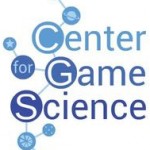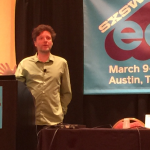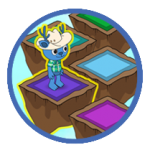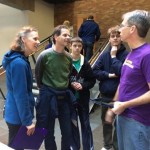For immediate release:
The Center for Game Science at the University of Washington is pleased to invite all K-12 classrooms around Washington state to participate in this year’s “K-12 Story Problem Challenge”, a story-problem-based Algebra Challenge. During the week of April 27 – May 1, participating K-12 classrooms will be challenged to solve over 250,000 story problems collectively by playing new math learning game Riddle Books, which teaches Common Core-aligned pre-algebra concepts via story problems in a friendly game-based environment. All grades and all levels are invited to participate – the challenge is designed to enable any learner to solve story problems at their grade level and beyond. In the K-12 Story Problem Challenge, “If you can read it, you can solve it!” Signups are currently available for classrooms by visiting our site.
Participation is completely free, and the game will work on any recent web browser. Any class with access to a PC, Mac, or Chromebook can join the challenge.
Riddle Books, created by the Center for Game Science at the University of Washington, presents story problems with fun fantasy-based themes. It aims to develop learners’ understanding of Common Core concepts with a focus on developing conceptual understanding through visual models. It uses story problems to gradually introduce the player to the notion of equations. The game starts off with the player manipulating pictures and dealing with relationships they can intuitively understand and enables students to solve story problems regardless of their skill level. The challenge will also feature an innovative, free Teacher Copilot that allows teachers to view real-time student gameplay data and helps to remove key misconceptions at the group and individual level.
“Young students have a great time puzzling through these modeling story problems and turning them into equations,” said Mike Taylor, Center for Game Science Curriculum Development Specialist. “Plus, the unique stories keep them coming back for more.”
The K-12 Story Problem Challenge provides an opportunity to use the state-of-the-art tools from the Center for Game Science, featuring immediate feedback, differentiated learning paths, and active involvement through experiential and discovery learning. The Center for Game Science at the University of Washington is a leader in research-based adaptive learning through games.




